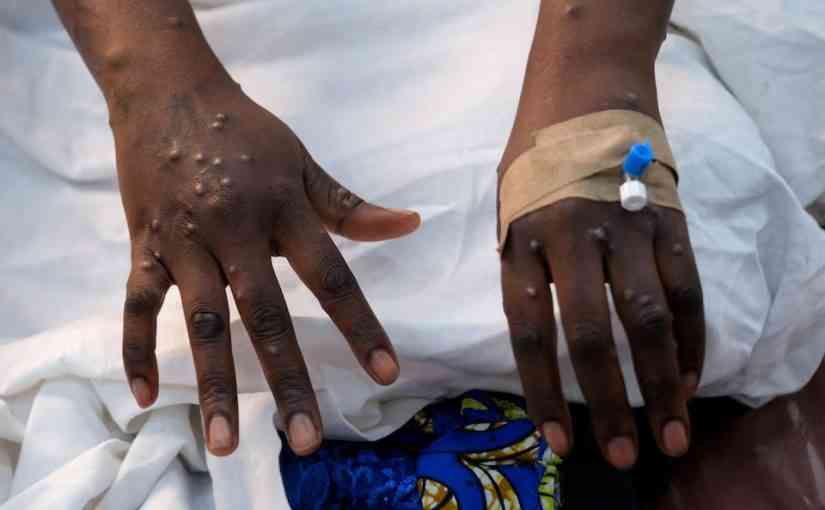
ZIMBABWE has recorded two cases of the viral Mpox virus with the government yesterday announcing that both cases are in isolation at home and that people should not panic as the “situation was under control”.
The announcement was made by Health and Child Care minister Douglas Mombeshora yesterday comes two months after the World Health Organisation declared the Mpox a public health emergency based on the outbreak in the Democratic Republic of Congo. The Africa Centres for Disease Control and Prevention in August declared Mpox a public health emergency of continental security in Africa.
Addressing journalists in Harare yesterday, Mombeshora said the two confirmed cases were recorded in Harare and Mberengwa.
“Case number 1 is an 11-year-old male child with a known history of having travelled to South Africa in August 2024, returning to Zimbabwe on the 10 of September 2024.
“He developed symptoms on the 23rd of September 2024. He is currently in isolation at home and is no longer infectious, seven contacts have since been identified and are being monitored.”
Mombeshora said a 24-year-old male with a known history of having travelled to Tanzania in September this year developed symptoms on September 29, 2024.
“He is currently in isolation at home and is no longer infectious. Contact tracing and monitoring is underway. Mpox is a rare viral infection caused by an Mpox virus that is endemic in Central and West Africa. It spreads through close contact with people, animals or through materials infected with the virus,” he said.
Mpox symptoms include fever, rash (that can look like pimples or blisters that appear on the face, inside the mouth, or other parts of the body, especially hands, feet and chest) and headache.
- Zanu PF old guard retain CC posts
- No room for excuses
- Harare water crisis dire. . . as hospital runs dry
- An impassioned plea for our health sector
Keep Reading
The symptoms also include muscle ache and backache, swollen lymph nodes, chills, exhaustion and respiratory symptoms (sore throat, nasal congestion or cough).
The incubation period is usually three to 21 days and is typically slow developing over two to four weeks, Mombeshora said.
The disease is normally self-limiting, but can be severe in individuals with compromised immunity and other co-morbidities, he added.
“This means that the condition resolves on its own between three to four weeks during which time health interventions take the form of supportive treatment including antibiotics and painkillers as required,” Mombeshora said.
He said the disease can be prevented through avoiding sharing clothes and isolating persons showing symptoms from others who could be at risk of infection.
“Practising good personal hygiene including frequent hand washing with soap under running water or through use of an alcohol based hand sanitisers regularly.
“Avoid sexual contact with persons showing symptoms and using personal protective equipment when caring for infected persons,” he said.
Mombeshora urged any persons with symptoms to report to the nearest health facility as soon as possible and that the public must report suspected cases.
He said the Ministry had placed all its structures on “high alert, including at all ports of entry” and that the government had also activated the national and subnational incident management systems.
Johannes Marisa, public health expert and medical doctor, called for calm adding that public health measures were important at this juncture “if we are to contain the spread of Mpox taking cognisance of the fact that Zambia has recorded cases”.
“What happens in countries bordering us may spill into Zimbabwe. We must go through mitigatory and containment measures and what we need is to reduce person to person transmission, taking note of the fact that we need to do robust case management,” Marisa said.
“We must continue with health awareness campaigns, upscale our testing, surveillance and contact tracing. We need to tighten borders in terms of screening so that we don’t allow undetected cases to flourish in our country or pass through our borders.”
He called for the stocking up of drugs that are supposed to fight Mpox.
Itai Rusike, executive director at Community Working Group on Health, said it was important to ensure that the public has comprehensive information on the disease and its characteristics to be safe, adding that an outbreak in one area must be treated seriously.
“We inform the public to look out for correct information regarding the confirmed cases of Mpox outbreak in Harare and Mberengwa and maintain that an outbreak anywhere is potentially an outbreak everywhere as we saw with COVID-19 pandemic,” Rusike said.
He called for vigilance among citizens in addition to taking precautionary measures such as maintaining good personal hygiene, avoiding unnecessary contact with suspected persons, maintaining infection prevention and control measures at family, community and health institution levels and handling animals safely.
Since the outbreak of Mpox, there are 7 535 confirmed cumulative cases of and 32 deaths globally.










